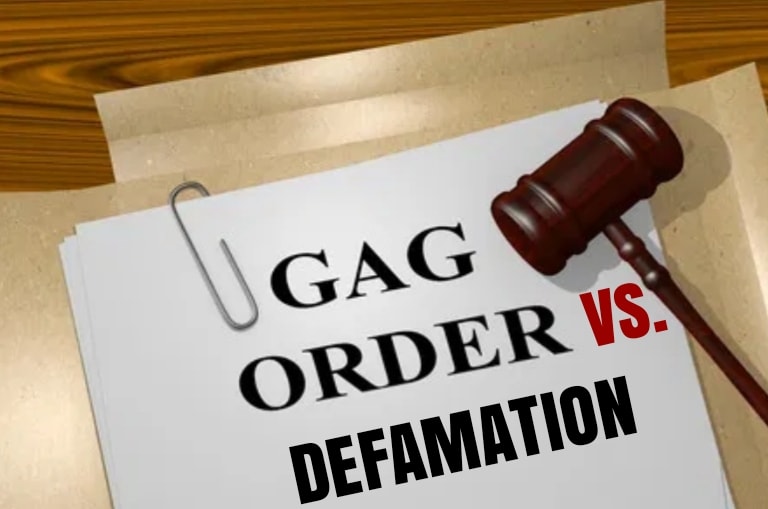
A vicious, derogatory, false comment or review has been posted online about your business. You have gone through all seemingly available non-legal options but it does not seem possible to have the published post removed, at least not here and not now. Quite reasonably, you are deeply concerned about the potential damage to your business reputation, which could be virtually incalculable.
Of course, aggrieved victims of defamation may pursue a civil action in an appropriate court of law for money damages against the person(s) who attacked their character or integrity, personal or professional, through libel or slander. Those damages may include monetary compensation for the losses actually incurred (for example, loss of income, business opportunities and contracts) and even punitive damages in appropriate circumstances. But what about the continued damage the existing on line review is causing you and your business before you get to recoup your monetary losses down the line? Worse yet, what if the onslaught of derogatory and defamatory statements is not a singular occurrence, but continues, is systematic and/or regular? What if the defamer refuses, after duly served notice, to remove the comment or to cease and desist from continuing to publish the stream of defamatory statements, all to your, the victim’s, great and rising detriment? Is this not the type of “severe and irreparable injury” which cannot effectively be repaid with money much later, for which the equitable remedy of injunction should be immediately available? Can a court intervene to order a defendant to stop defaming his victim, remove the posting and therefore stop the bleeding?
The answer: it generally depends on the temporal stage in the litigation – that is, whether an injunction is sought before or after trial. This is because the overarching constitutional interest in protecting free speech clashes with your contention that someone else’s free speech is defamatory and egregiously damaging to you. Courts have always wrestled with these competing interests and a test eventually emerged.
In New Jersey, for example, the weight of authority stands for the proposition that an injunction restraining speech (prohibiting further defamation or mandating the removal of defamatory content online, for example) may not be issued at the beginning of, or during the litigation, that is before plenary trial or judgment establishing that defamation actually occurred.
Against the defamation Plaintiff’s inetersts stands bedrock law that “prior restraints on speech and publication are the most serious and the least tolerable infringement on First Amendment rights.” Nebraska Press Ass’n v. Stuart, 427 U.S. 539, 559 (1976). Accordingly, “[s]ubsequent civil or criminal proceedings [where permissible], rather than prior restraints, ordinarily are the appropriate sanction for … defamation or other misdeeds in the First Amendment context.” CBS, Inc. v. Davis, 510 U.S. 1315, 1318 (1994). “Under the first amendment to the United States Constitution, prior restraints on expression are abhorred…. Therefore, any system of prior restraints is immediately suspect and there is a ‘heavy presumption’ against their constitutional validity.” E-Bru, Inc. v. Graves, 566 F. Supp. 1476, 1478-79 (D.N.J. 1983) (citing Bantam Books, Inc. v. Sullivan, 372 U.S. 58, 70 (1963); New York Times Co. v. United States, 403 U.S. 713, 714 (1971)).
A well-entrenched such First Amendment principle is that “[t]emporary restraining orders and permanent injunctions – i.e., court orders that actually forbid speech activities – are classic examples of prior restraints” on speech. Alexander v. United States, 509 U.S. 544, 550 (1993); see also Org. for a Better Austin v. Keefe, 402 U.S. 415, 419-10 (1971) (preliminary injunction against distributing leaflets was unconstitutional); Vance v. Universal Amusement Co., 445 U.S. 308 (1980) (statute permitting injunctions against future film exhibitions was unconstitutional); Near v. Minnesota ex rel. Olson, 283 U.S. 697 (1931) (injunction against publishing defamatory newspaper articles was unconstitutional).
Therefore, aggrieved plaintiffs, even those whose personal or commercial reputations are sure to suffer from the dissemination of venomous attacks against their person, character, intergrity, reputation, products, or services, whether on-line and/or elsewhere, generally face an insurmountable task when trying to gag alleged defamers before trial.
The New Jersey Appellate Division noted that restraints on speech may be appropriately entered only AFTER a trial in which defamation had already been proven. Thus, an order barring further defamation was deemed proper only where “injunctions were issued after a full trial had been held and a finding made that the statements were, in fact, false and defamatory and, therefore, not entitled to First Amendment protection.” Chambers v. Scutieri, No. A-4831-10T1, 2013 WL 1337935, at *13 (N.J. Super. Ct, App. Div. Apr. 4, 2013). By contrast, the Appellate Division has found that injunctive relief is improper where “[in the form of] a preliminary injunction, without first conducting a trial or hearing to determine the full extent of the defamatory conduct.” Id.; see also Kramer v. Thompson, 947 F.2d 666, 679-80 (3d Cir. 1991) (reversing an injunction because it restrained an individual “from repeating the statements deemed libelous” because there had not “actually … been a jury determination regarding the libelous nature of defendant’s statements.” (emphasis in original)); Bihari v. Gross, 119 F. Supp. 2d 309, 327 (S.D.N.Y. 2000) (denying preliminary injunction against alleged defamation).
In conclusion, where there has been no trial and no determination made by a trier of fact (judge or jury) that the statements alleged to be defamatory were, in fact, defamatory, courts should not and generally do not restrain speech. This fundamental principle derives from strong constitutional considerations that weigh heavily against the issuance of a restraint against allegedly (read “unproven”) defamatory speech on less than a fully developed record.
On the other hand, if the defamation can be established expeditiously through summary judgment, or possibly through a handful of other legal procedures and procedural mechanisms, in appropriate cases courts may well be asked successfully to enjoin future libel and slander without trial.
Author: Robert S. Popescu, Esq.
